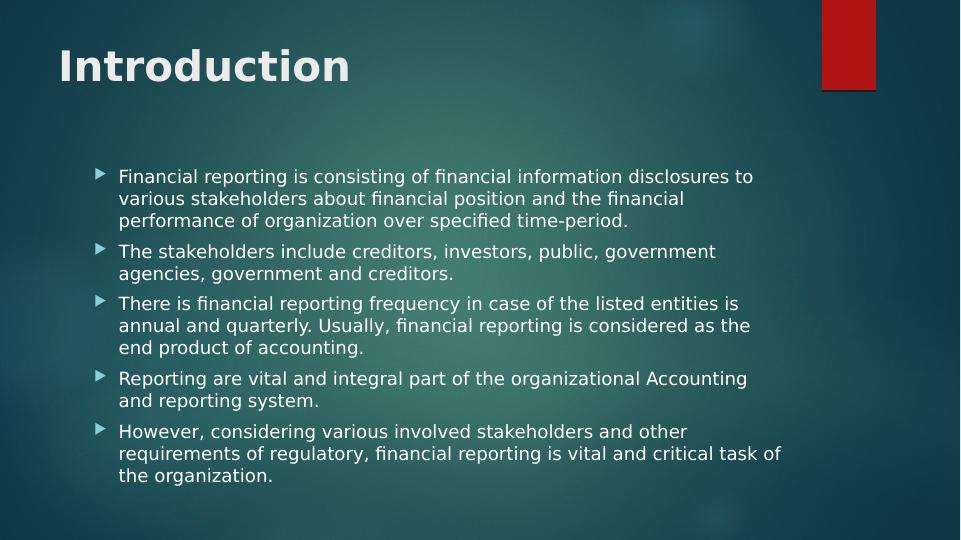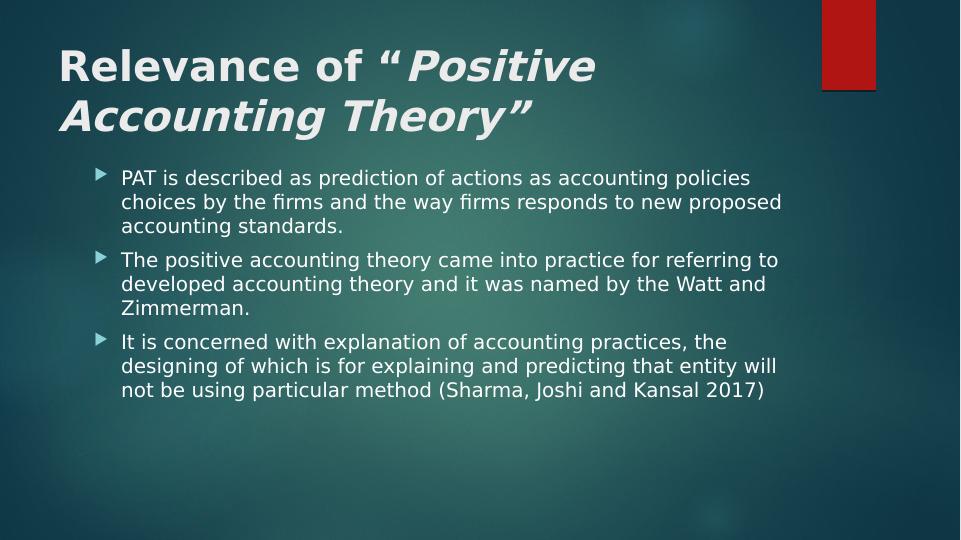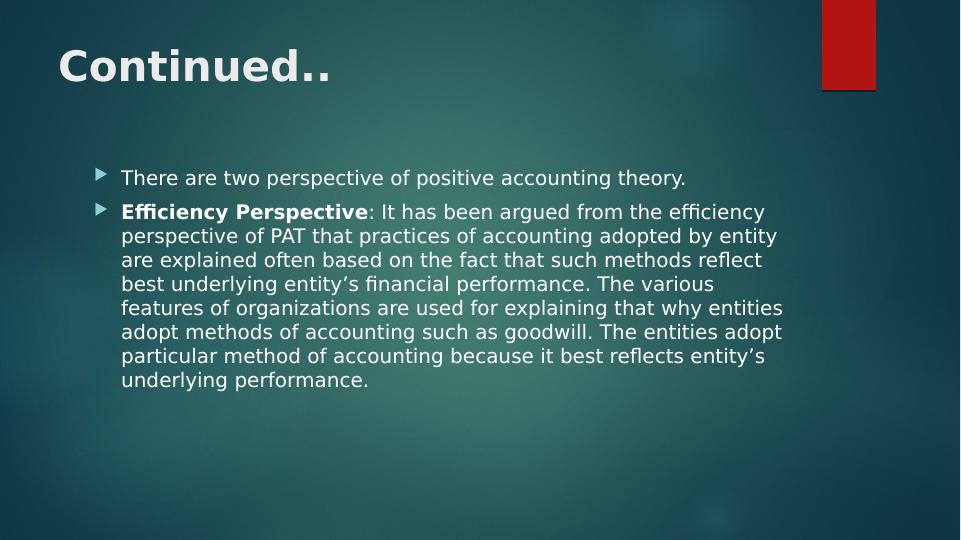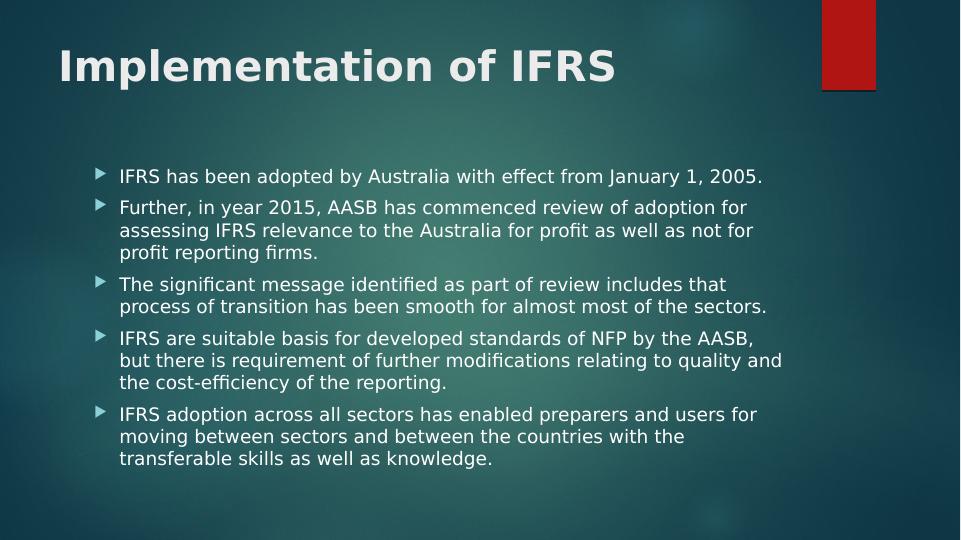Financial Position and the Financial Performance
21 Pages3119 Words11 Views
Added on 2022-08-21
Financial Position and the Financial Performance
Added on 2022-08-21
ShareRelated Documents
End of preview
Want to access all the pages? Upload your documents or become a member.
National Accounting Setting Bodies
|12
|4745
|12
Adoption of IFRS -A Critical Review
|17
|4226
|22
International Journal of Accounting and Economics
|13
|2170
|23
Adoption of IFRS and Relevance of Conceptual Framework of Financial Reporting
|17
|3684
|427
Adoption of IFRS - A Critical Review
|18
|4340
|33
ACCT6007 Financial Accounting Theory & Practice
|6
|1982
|75






